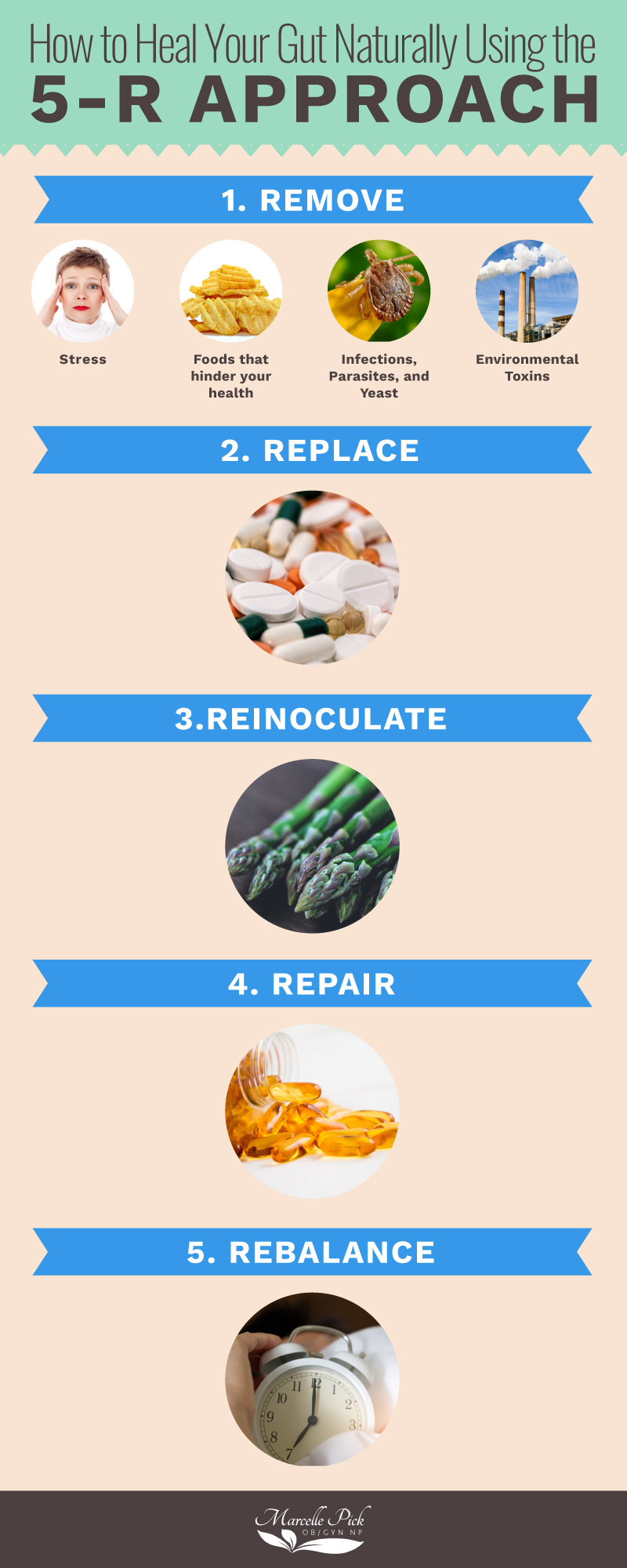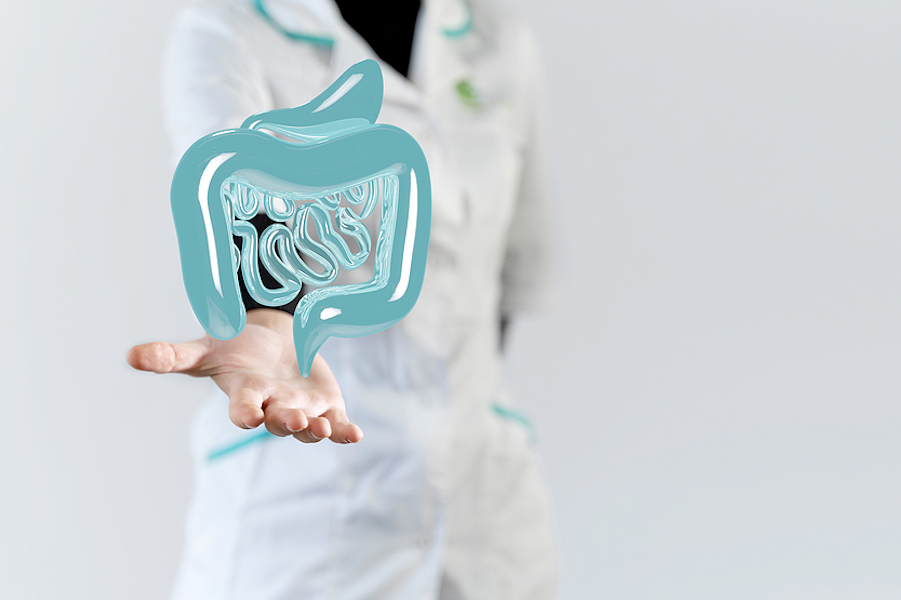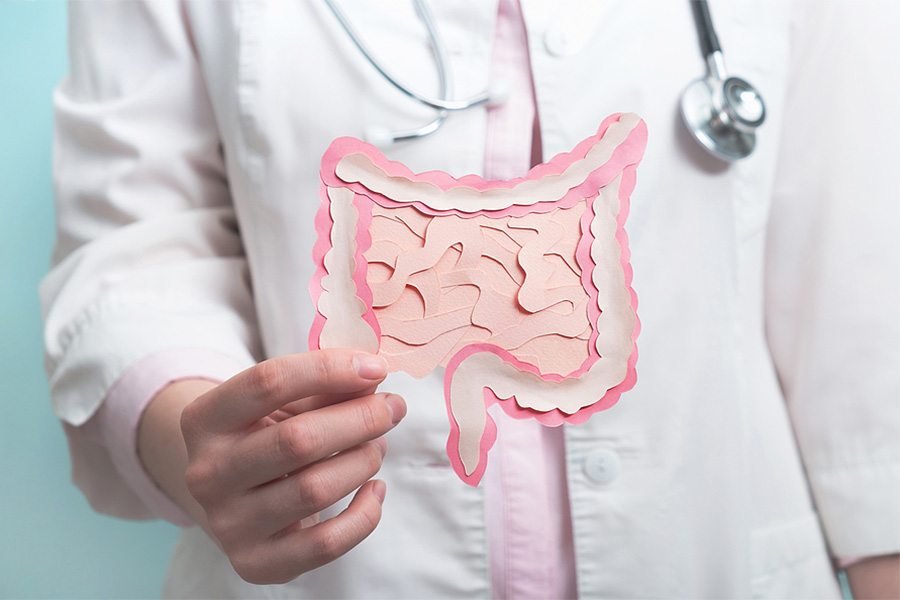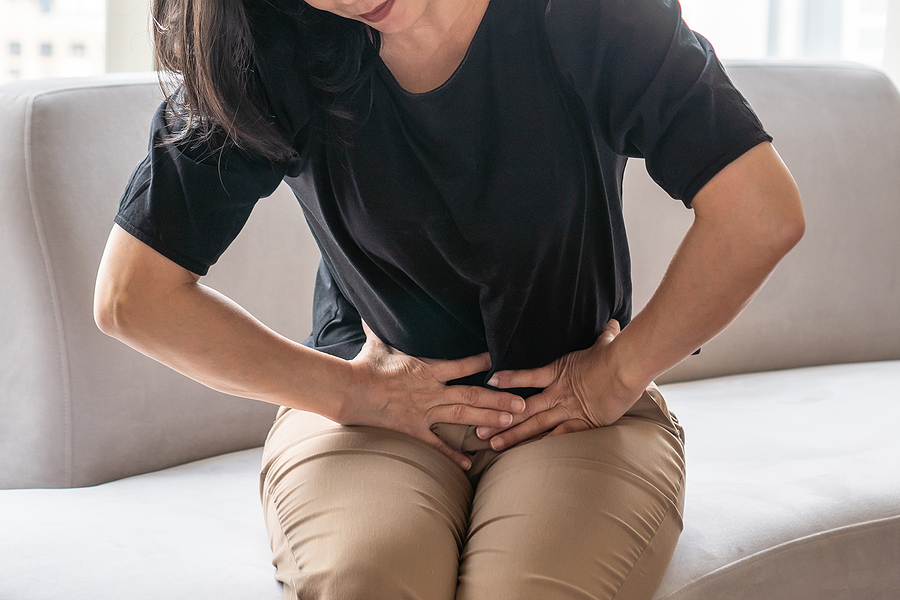Thousands of women have come into my practice over the years complaining of painful digestive problems and wondering if there’s anything left to try. They’ve seen specialists who may have treated the symptoms with medications, but the issues just keep coming back. Questions like, “how to heal your gut naturally?” may start to come up in their mind more.
Chronic digestive issues have been a part of their life for so long, they’ve resigned themselves to simply living with it. They ask me, “Is this the way my life will be forever?” I am quick to reassure them that the answer is no. In fact, taking that approach could mean that the issues develop into chronic illness that are even harder to treat. Those symptoms are sending a message – it’s up to you to listen to them!
I know that some of the symptoms can be embarrassing and difficult to talk about. I’ve heard it all: deep, painful belches, bloating that forces women to change out of their skinny jeans and into stretch pants night after night, chronic constipation, flatulence and abdominal cramping. None of these are symptoms should be ignored, no matter how uncomfortable they are to talk about. Let’s talk more about how common digestive issues are, symptoms and their impact on your health, and how to heal your gut naturally.
Digestive Issues Are More Widespread Than You Think
You might feel alone in dealing with uncomfortable symptoms that keep you holed up at home instead of out enjoying your life. In reality, there are 60-70 million people in the US affected by digestive diseases. Of course, these can range in severity from simple indigestion to chronic problems that make life miserable. But one thing is true for all of these digestive issues – there is help available to learn how to heal your gut naturally!
The key is looking below the surface to understand the real problem. And this is where so many conventional doctors miss the mark. When women head to a gastroenterologist they may come away with a diagnosis of Irritable Bowel Syndrome or the more serious Irritable Bowel Disease. It’s also possible that they’ll be tested for Celiac disease.
The problem with these diagnoses is that often they only look at what’s happening on the surface – they examine and treat the symptoms but may ignore the deeper root causes. Add to that the fact that so many women have digestive issues that don’t fall into any of those diagnoses – but that doesn’t make them any less difficult to deal with. Where are they coming from? There are so many possible answers. Think about it – your small intestine, unwound, would stretch about 20 feet. That’s a lot of area for something to go wrong. If you’re only looking for the obvious answers, you could miss the actual problem.
Prescriptions Aren’t the Answer. Here’s why:
Often, a diagnosis of IBS, IBD or Celiac disease comes with few if any dietary restrictions and a prescription. And while that may indeed relieve the immediate problem – the painful symptoms – it won’t resolve the underlying issues. So, if you stop taking the prescription, your symptoms will return – maybe even stronger than ever. And what about the side effects that could be a result of long term prescription use? Sometimes, those are even worse than your original symptoms. When you look at the whole picture, you can take steps to really heal your gut instead of relying on a temporary fix. This is why more and more women are turning to functional medicine and learning how to heal your gut naturally.
Understanding the Root Cause of Digestive Issues
Like I said before there are any number of things that can cause digestive problems. The bacteria in your intestines are established by the time you turn 2 years old. That means if you have an imbalance from birth, it could be very difficult to bring your system back into balance naturally, especially if you had multiple antibiotics as a child. Where you were raised can have an impact as well – if you are never exposed to bacteria, you are far less equipped to handle it when the bad kind overtake the good guys.
Digestive issues can also stem from food sensitivities – and I’m not just talking about sensitivity to gluten, though that is one that I look at. If your system can’t tolerate something that you consume regularly, all of those digestive issues are bound to pop up. One of the first things I do in my practice when a woman tells me about digestive issues is test her for food sensitivities. While having this information won’t solve the problem on its own, it can be very useful in helping a woman know what foods to avoid without needing to try a full elimination diet, which can take several weeks and be hard to stick to. Often taking away offensive foods is a place to start.
I also order a stool test for patients complaining of digestive issues, because it can tell me so much about what’s really going on in her system. She may have an overgrowth of unwelcome bacteria, parasites, or excessive yeast in her system. She may not have enough digestive enzymes. There are things we can do for each of those as long we know what we’re dealing with.
It’s also important to understand how stress can change your gut health. “Gut reactions” are real and are sending you a message. If you ignore those feelings in your gut for too long you could end up with far more serious health difficulties. Stress and physical health are intricately connected, so it’s crucial that you find ways to care for yourself and relieve stress whenever possible.
Your Digestive System Can Impact All Other Body Systems
Women bring up their digestive issues seeking relief from painful symptoms. But good gut health has an impact on so much more. All of your body systems are connected to your gut, and having a healthy digestive system is critical to optimal functioning of all your body systems. So many symptoms can be a sign of underlying digestive issues, including:
- Bloating, belching, and flatulence after meals
- Indigestion, diarrhea or constipation
- Weak or cracked fingernails
- Skin irritations like post-adolescent acne or rosacea
- Iron deficiency
- Fatigue
- Anxiety or depression
- Chronic intestinal infections
- Painful joints
With so many parts of your body relying on a strong and healthy digestive system, it’s essential to know how to heal your gut naturally. You CAN bring your gut back into balance and heal those underlying issues!
How to Heal Your Gut Naturally Using the 5-R Approach
Learning how to heal your gut naturally is why so many women come to me for their digestive issues. In functional medicine, we use a 5-R protocol to address health concerns: remove, replace, reinoculate, repair, and rebalance. Whenever I am examining a complex health issue, I have all five of these steps in mind. Here’s how to heal your gut naturally using the 5-R Approach:
1. Remove
This can be the most complex step, because there are so many things that don’t belong in your body and can severely disrupt your digestive system. For best healing, consider removing the following elements:
Stress
If your life is following the crazy pace of many Americans, you might wonder how stress reduction is possible. While it’s true you may not be able to eliminate all of the stressors in your life, taking small steps to alleviate the pressure can be critical in addressing digestive issues. Find five minutes per day to stop, take a few deep breaths, and really think about what you are doing. Try to answer just one request with a “no” or pull back from a relationship that adds more chaos than fun to your life.
Foods that hinder your health
First and foremost, wean yourself off carbohydrates and sugar. When your system is already overworked, filling up on these can push your body past its breaking point. Spend time paying close attention to what – and how – you eat. Sit at the table and focus on chewing your food well to aid in digestion. Consume plenty of lean protein, high fiber fruits and vegetables, and water to keep you hydrated.
Be aware of foods that your body may be allergic or sensitive to. This might mean trying an elimination diet, having a food allergy/sensitivity panel, removing sugar, gluten, and dairy, among other common allergens, to see how you feel when you aren’t eating these things.
Infections, parasites, and yeast
It’s possible that you have a lingering infection, an overgrowth of bacteria, or parasites in your system. There are so many different possibilities that it may take a while to discover exactly what is going on in your body. Be persistent and ask for appropriate testing. Once you discover exactly what you are up against, you can make an informed decision on how to eliminate it. For instance, I often treat SIBO (small intestinal bacterial overgrowth) with herbs first. I’ve had great success using a specific combination of herbs, which are both natural and far less expensive than the antibiotics often prescribed. Approximately 80% of those with IBS have SIBO.
Environmental toxins
Our world is full of toxins, and many people have no idea how to avoid them. Because we are exposed through the clothes we wear, beauty products, the food we eat and even the air we breathe, it’s impossible to avoid them entirely. But taking small steps to reduce what your body is exposed to can help. Buy organic foods – at the very least the “dirty dozen” – whenever possible. Use natural cleaning products, detergents and beauty products.
2. Replace
Just as your body can have an overabundance of some things, like bacteria or toxins it can’t tolerate, it can also be missing some key components. When it comes to digestive issues, often you will need to replace digestive enzymes that have been compromised by a variety of factors, including poor diet, medications, and natural chemical changes that come with aging. Talk with your practitioner about adding in digestive enzymes, hydrochloric acid, and bile acids necessary for proper digestion. Each of these aids your system in breaking down and absorbing nutrients, which can calm those painful symptoms you’ve experienced. Testing can help determine what you need.
3. Reinoculate
Making sure you have enough good bacteria – like bifidobacteria and lactobacillus – is as important as eliminating the bad ones. Your body may have been lacking these good guys for a very long time – even since birth.
Prebiotic foods feed the good bacteria, so eating these foods can really boost the beneficial bacteria in your gut. If your system has been compromised for a long time, however, you might find yourself unable to tolerate these foods, so be aware of how they make you feel. You’ll get the most prebiotic benefit if you consume these foods raw – cooking can break down some of the beneficial components. Some of the best prebiotic foods include:
- Asparagus
- Bananas
- Dandelion Greens
- Garlic
- Jerusalem Artichoke
- Onions
- Sauerkraut
Probiotics are the “good” bacteria you need to balance out the flora in your gut. Fermented foods like yogurt, miso, kefir, and tempeh contain probiotics, but it can be difficult to consume enough to reach optimal balance with food alone. And some people simply don’t care for the taste or texture of fermented foods. You can also get the probiotics you need in supplement form, like my Biotic Support, which contains 5 billion cfu of my proprietary probiotic blend, carefully designed to restore health to your gut.
4. Repair
In addition to reintroducing the necessary beneficial bacteria into your system, you may need to repair damage to the lining of your GI tract. You may be lacking some key nutrients that can calm inflammation and assist in healing your digestive system, such as zinc, vitamins A, C and E (all powerful antioxidants), fish oil which supplies essential fatty acids, and glutamine. Eating plenty of foods rich in these nutrients or seeking additional supplemental support can keep your healing moving forward.
5. Rebalance
After interventions have successfully restored balance to your system, it’s up to you to pay attention to lifestyle choices that could throw it off kilter again. Good nutrition is critical to maintaining this balance, but there are three other areas that make a big difference as well: sleep, exercise and stress levels. Poor choices in each of these areas can have a big impact on your GI tract, so be sure you are finding ways to move on a regular basis, get quality sleep, and keep your stress to a minimum.

Understanding How to Heal Your Gut Naturally to Live Life to its Fullest!
All of this talk about what truly impacts gut health – and the myriad other conditions that are tied to your digestive health – may seem overwhelming. But really, having good information is the best thing you can do for yourself to learn how to heal your gut naturally. Once you know what’s really going on, you can take the necessary steps towards healing. If you don’t really know what is causing those bothersome symptoms, you can’t really address the problem, and you’ll never feel your best. It’s time to push aside whatever is holding you back and take matters into your own hands once and for all. Why would you settle for less than feeling your absolute best? It is my hope that learning how to heal your gut naturally using the 5-R protocol is one of your stepping stones to better digestive health.







